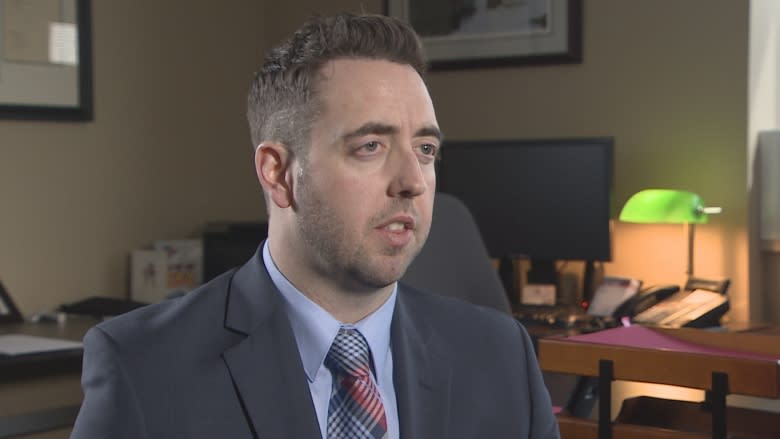Trent Butt court case won't be delayed, justice minister says
Newfoundland and Labrador Justice Minister Andrew Parsons says he understands the concerns of those pushing for a quicker trial for accused killer Trent Butt, but says the trial won't get bogged down in the court system.
Jury selection for the trial of Butt — who is charged with murdering his five-year-old daughter, Quinn, as well as with setting fire to his Carbonear home — is scheduled to start in March 2018.
Cindy Crawford, who started a group called Justice for Quinn, told CBC earlier this week the case is taking too long.
"That's a fair worry to have for any case, especially for a case like that. You don't want to see anything get in the way of having a proper trial," Parsons told CBC Radio's St. John's Morning Show on Tuesday.
"That being said, I have no concerns that things are not going to proceed the way that they should."
Case against Mountie thrown out after 4 years
Cranford said the wait for Butt's trial to start is simply too long.
"As far as I'm concerned, having to wait another year is injustice itself," she said.
Fears of delayed justice weren't helped when a judge in Labrador threw out a child-luring case last month against a former RCMP officer in Hopedale, citing a long delay. The former Mountie had been charged more than four years ago.
In July 2016, in the R. v. Jordan case, the Supreme Court of Canada established limits on the length of time from charges being laid to the conclusion of trials: 30 months in supreme or superior courts, 18 months in lower courts.
Case-management judge assigned to Butt case
The limits are meant to speed up trials but have also had the effect of bringing forward old cases already in the system, such as the child-luring case, that are being thrown out.
"I can't change how these matters proceeded prior to that," said Parsons. "What I can be concerned with is all the matters going forward."
In the Butt case specifically, said Parsons, a case-management judge has been assigned to ensure things move smoothly.
More broadly, he said, after R. v. Jordan, the justice department began reviewing cases in the system to find any that may have a "Jordan concern" to make sure the matters are taken care of right away, as well as stressing the importance of speedier resolutions throughout the justice system, all the way down to the law-enforcement level.
The justice minister said when he practised criminal defence law, securing a postponement was never an issue.
"There was never any argument about that. Things could be postponed. You could take your time," he said.
"That's not an automatic now. Basically, our Crowns are saying, 'We need to proceed expeditiously.' And you're not going to get an adjournment just if you ask for one."
Parsons also said there's a movement to eliminate preliminary inquiries,
"We don't necessarily need that. The way our evidence is these days, the way our disclosure is, I don't think that's a necessary step."



